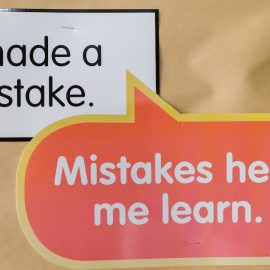

This article is an excerpt from the Shortform book guide to "The Big Leap" by Gay Hendricks. Shortform has the world's best summaries and analyses of books you should be reading.
Like this article? Sign up for a free trial here .
Do you often find yourself wasting your time on activities that are neither productive nor enjoyable? Do you often feel like there’s either not enough or too much time?
One of the most common self-defeating behaviors people tend to engage in is not using their time effectively. This creates a constant source of unnecessary stress for many of us. If you want to get to the root of your time-wasting problem, you must redefine your relationship with time.
Here’s how to stop wasting time on unworthy pursuits.
Redefine Your Relationship With Time
Time-wasting stems from a faulty way of thinking about time. He offers a different perspective to shift your thinking in this area. When you transform your thinking about time, you remove the stress created by the idea that there’s “not enough” or “too much” time. This allows you to feel more peace and abundance in your life and to devote more time to those things that enhance your state of fulfillment.
In his book The Big Leap, Gay Hendricks explains how to stop wasting time on things that aren’t worth it. This requires a shift in thinking that involves changing your concept of time as something outside of you that constrains you, to something that comes from within you and is abundant. He explains the difference in terms of Newton’s and Einstein’s theories, where the Newtonian model is the way we typically think of time, as objective and finite, as opposed to Einstein’s concept of time as relative and subjective.
(Shortform note: Reviewers of the book have raised questions about whether Hendricks’s descriptions here accurately represent the theories of Newton and Einstein. But if we take them as loose interpretations, we can use these concepts as a basis for thinking about how to use time more wisely. Some fairly simple shifts you can make are: Try focusing your attention fully on the present moment, spend less time thinking about doing things and more time doing them, and don’t get distracted by the “small stuff” that wastes time.)
A concept of time based on Einstein’s model would mean understanding that time is relative to our experience of it. Depending on what we’re doing, it can feel like it goes faster or slower—we’ve all had this experience. Time seems to drag when you’re waiting for medical test results, but flies by when you’re on vacation. Hendricks argues that this is due to how your attention is focused. When you fully focus your attention in the present moment, you can use the time more deliberately.
You can use this relativity to your advantage by realizing that you control your experience of time; thus, simply understanding time from this new mindset will be a positive step toward eliminating the constant feeling of rushing from our lives.
As a practical step, Hendricks suggests you can begin by changing how you speak about time. Notice where you complain about time, for example how often you say you “don’t have time” to do something. Usually when we say this we really mean we don’t want to do it. It’s more about our priorities. If something is important you’ll “make time” for it. According to Hendricks, this means you can always make time. So, as a first step in changing your perception of time, Hendricks urges you to eliminate any complaining about time, or reference to time constraints, from your language.
| Time Is an Illusion The Secret discusses time as an “illusion” and offers suggestions for how to re-conceptualize time, in much the same way as Hendricks describes. In this case, it’s rooted in the concept of the “law of attraction,” which is the principle that everything you experience is a product of, and determined by, your thoughts; in other words, “what you think about, you bring about.” This is based on the idea that everything in the universe is energy, including your thoughts. So when you have a thought, you’re putting that specific energy out into the universe, and that will attract the same kind of energy. In this way, we all create our reality with the power of our thoughts, and therefore we can change our reality simply by changing our thoughts. So, according to this principle, if you think you have limited time, you will in fact have limited time. But if you simply switch to thinking you have an abundance of time, you will have an abundance of time. |

———End of Preview———
Like what you just read? Read the rest of the world's best book summary and analysis of Gay Hendricks's "The Big Leap" at Shortform .
Here's what you'll find in our full The Big Leap summary :
- How to overcome the psychological barriers to success and fulfillment
- Why most people have a self-imposed limit to happiness
- How to identify your own false beliefs and stop self-sabotaging






